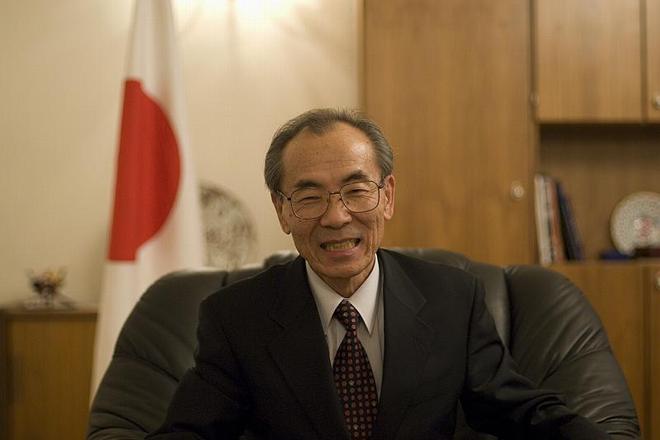SINCE Slovakia gained independence, Japan and Slovakia have developed fairly good relations, although there have been ups and downs in the past. Our trade reached $675 million in 2008. Although it decreased to $493 million in 2009 due to the economic crisis, it started recovering again in 2010. Forty-five Japanese companies are operating in Slovakia and have created about 9,000 jobs. However, taking account of Japanese economic power and the potential of both countries, these achievements are not enough. We have more room to develop in the future.
Japan is seven times larger than Slovakia, but with a population 25-fold greater; it therefore has a very high population density. We have hardly any mineral and energy resources. Japan is a country totally dependent upon its people’s wisdom and its relations with other countries.
After World War II, Japan re-started its nation-building process from the position of devastation. Thanks to our people’s diligence and their high level of education, which was historically cultivated, the country eventually grew into the second largest economic power by the end of the 1960s. At the same time, in the process of development, we went through severe trials of environmental pollution, of both air and water, as well as pollution-triggered diseases. With deep regret and reflection, we developed non-polluting technologies and have largely improved our environment. Now you can take a deep breath in the centre of Tokyo without any concern.
We were also faced with serious energy crises in the 1970s and overcame these by great effort and persistence in the development and innovation of energy-saving technologies. Now Japan’s energy efficiency is about twice the OECD average, and 7 to 10 times higher than that of newly emerging countries in Asia.
When we think about Japanese-Slovak future relations, the introduction of Japanese technology to Slovakia or joint research and development of these technologies may be the field which we should pursue.
One Japanese company has developed a state-of-the-art technology for sewage disposal which, using a special film, can turn sewage contaminated with chemical materials into drinkable water. In order to solve the problem of air pollution, Japan has developed small efficient engines, hybrid cars and electric cars. Japan is proud of its desulphurisation technology used at thermal power plants. This is part of our economic cooperation with developing countries, where coal is often used to generate power.
Last November, a Japanese expert on saving energy came to Bratislava and lectured at the Economy Ministry on the topic “Energy conservation of Japanese building-related industry against global warming”. According to him, Japanese thermal power-plant efficiency is one of the top technologies in the world and he emphasised, among other things, the usefulness of the natural refrigerant (CO2) heat pump water heater, which is a high-efficiency hot-water heater developed to save energy. It uses natural CO2 as a refrigerant and therefore does not destroy the ozone layer. It can produce heat five times greater than the input electricity. It can use cheap night-time electricity, so it is family-budget-friendly. This system is already used in half of newly-built houses in Japan. Slovakia has a longer and colder winter than Japan. How about using these technologies, equipment or systems in houses and communities in Slovakia?
Yoshio Nomoto is Japan's ambassador to Slovakia
Author: Yoshio Nomoto


 Ambassador Yoshio Nomoto (source: Jana Liptáková)
Ambassador Yoshio Nomoto (source: Jana Liptáková)